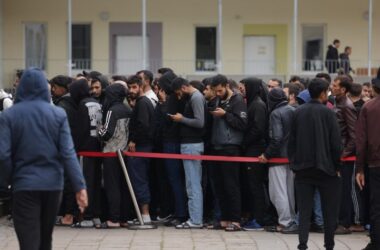Italy has kicked off its controversial deportation strategy by sending the first irregular migrant to a repatriation facility in Albania, marking a major step in Prime Minister Giorgia Meloni’s clampdown on illegal immigration.
On April 19, Interior Minister Matteo Piantedosi announced on X that a Bangladeshi national had been expelled to a newly repurposed detention center in Gjader, Albania. Authorities described the 42-year-old man, who had arrived in Italy in 2009, as a “danger to society” due to a criminal history that included domestic violence.
Piantedosi made it clear this is just the beginning. “Repatriation operations of irregular migrants will continue in the coming days as planned in the government’s strategy for more effective action against illegal immigration,” he wrote.
The move follows Meloni’s vow earlier this year to fast-track deportations, despite pushback from Italy’s judiciary. Critics argued that the initiative might run afoul of European Court of Justice (ECJ) standards, casting doubt on the legality of outsourcing migrant processing to a non-EU country.
Italy’s agreement with Albania includes the use of two facilities—one in Shengjin and another in Gjader—to process or detain migrants deemed ineligible to remain. But facing ongoing legal scrutiny, Rome shifted gears in late March, redesignating the Gjader site as a repatriation detention center to sidestep regulatory hurdles.
So far, only the Gjader facility—with space for 48 people—is operational, though capacity is expected to triple. A second, much larger site in Shengjin remains closed for now.
The ECJ is still weighing the legality of Italy’s arrangement. However, recent developments suggest the tide may be turning in Rome’s favor. In a February hearing, the European Commission backed Italy’s stance, arguing that EU law allows member states to classify third countries as “safe” for specific migrant categories. Then, in April, Advocate General Richard de la Tour echoed that view, stating that such classifications were permissible—so long as they’re transparent and subject to judicial oversight.
A final ECJ ruling is expected by early summer. In the meantime, Italy is pressing ahead, with more deportations on the docket and its Albanian facilities set to scale up fast.




